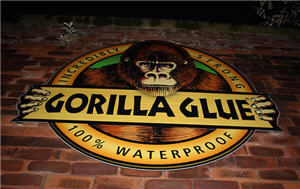Nine "Laws" That Advertisers Try Not To Break
Something fishy about that late-night ad for the new device that chops, slaps, snuggles and absorbs all stains — all for just $19.95 plus shipping and handling? Turns out the ad may not be illegal, but could still run afoul of the standards of the National Advertising Division of the Council of Better Business Bureaus, a sort of industry star chamber that warns advertisers when they’ve gone too far.
The goal of the NAD is to warn advertisers that they’ve crossed a line before they reach the point where the government might step in. “The NAD is applying the most important principles of advertising law and serve a consumer-protection function,” Terri Seligman, an attorney at Frankfurt, Kurnit, Klein & Selz who often handles NAD cases, told Advertising Age. “It’s in everyone’s interest that advertisers don’t lie.” According to AdAge, over 90% of advertisers go along with NAD decisions, rather than risking the ire of the FTC or other government agencies.
AdAge has compiled nine examples of activities that the NAD has clamped down on, including those involving “natural” products and misleading claims. One of our faves involves the elusive concept of “puffery.”
A few cases helped the NAD and the industry put their finger on the elusive definition of puffery. Puffery is allowed. If something is deemed puffery, it doesn’t have to be proved, it can just be said. But it gets tricky. For example when Gorilla Glue said its glue was the “toughest glue on planet Earth,” which sounds like puffery, the NAD ruled in 2006 that it was indeed a claim that had to be proved. On the other hand, a statement by Yahoo Personals was challenged by Match.com that same year, and the NAD decided that while a standalone statement of “Better First Dates” is puffery (because a “better” date is subjective), it’s an advertising claim needing substantiation when it’s combined with “More Second Dates” because it would have to show the numbers.
So, the next time a spurious ad disappears from the airwaves, don’t assume the government is on the case. The NAD may have beaten them to the punch, and saved the advertiser the cost and embarrassment of a nasty lawsuit.
Nine Things You Can’t Do in Advertising if You Want to Stay on Right Side of the Law | News [Advertising Age]
Want more consumer news? Visit our parent organization, Consumer Reports, for the latest on scams, recalls, and other consumer issues.


